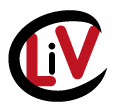University of Innsbruck (Austria), 10-11 October 2019
Scientific Organizers: Claudia Jünke (Innsbruck) and Désirée Schyns (Ghent)
In collaboration with:
– Forschungszentrum Kulturen in Kontakt (Innsbruck) and
– Centrum voor literatuur in vertaling (Ghent)
Description
A few years ago Sharon Deane-Cox (2013: 309) observed a “striking absence of dialogue between memory studies and translations studies”, two fields of research which with very rare exceptions (such as Brodzki 2007) did not have much contact with each other. This diagnosis is still valid today and has recently been confirmed by Siobhan Brownlie (2016: 12) who states that “the research concerning translation and memory […] has not been conceptualized as a whole”. The interdisciplinary conference aims at bringing together scholars from cultural memory studies and from translation studies without privileging one of the two disciplinary perspectives. In doing so, it wants to further explore the potential of a new research design that results from the intersections and the interplay of these two areas of study.
The focus of the conference will lie on a particular kind of memory: fictional and testimonial literature’s memories of traumatic pasts, i.e. memories of wars, genocide, dictatorship, colonial oppression, terror and other forms of politically and ethnically motivated violence. We propose to consider literary fictions and testimony that deal with these issues as media of ‘cultural memory’ in the sense of Jan Assmann (1992) and Aleida Assmann (2012), i.e. of collectively shared visions of the past which emerge from historical knowledge stored in and transmitted by cultural objects and practices and which circulate and are negotiated in the (trans)cultural sphere. What happens when texts that represent, perform and negotiate traumatic memories are translated into other languages and therefore into other cultural contexts? What is the importance of particular translation strategies, of paratextual framing, of different horizons of expectation and reception for the transmission of cultural reminiscence? Which role do the translations, the translators and other agents of translation play for memory’s transcultural, cross-border ‘travels’? Is there an ‘ethics of translation’ when it comes to the transfer of memories of past crimes? These are some of the question that the conference wants to address.
The far-reaching absence of dialogue between translation studies scholars and those cultural studies scholars interested in questions of translation seems to be mainly a consequence of the different concepts of ‘translation’ that are at play. On the one hand, cultural studies scholars advocate for a wide-ranging concept that understands ‘translation’ in a broad and metaphorical sense, referring for instance to the transfers between cultures, areas of knowledge or academic disciplines. This is for instance the case in Doris Bachmann-Medick’s work on the ‘translational turn’ in the humanities (see Bachmann-Medick 2009). On the other hand, translation studies scholars tend to criticize this conceptual widening and claim the importance of a more specific and narrow concept of translation that keeps ‘translation proper’ as its point of reference (see Dizdar 2009, Heller 2017). In focusing on memories of traumatic pasts in fictional and testimonial literature and in fostering a dialogue between memory scholars interested in questions of translation and translation scholars interested in questions of memory the conference wants to stimulate productive discussions that transcend the binarity of these two positions and that scrutinize the cross-fertilizations between the two academic disciplines.
The conference will focus both on theoretical and conceptual aspects and on particular case studies (on different genres such as narrative, poetry, drama, graphic novels, testimony, autobiography) that reflect on the intersections of memory and translation and that explicitly tackle the problems, questions and desiderata addressed in this description.
Meer informatie : https://www.uibk.ac.at/romanistik/personal/juenke/veranstaltungen/translating-memories/
